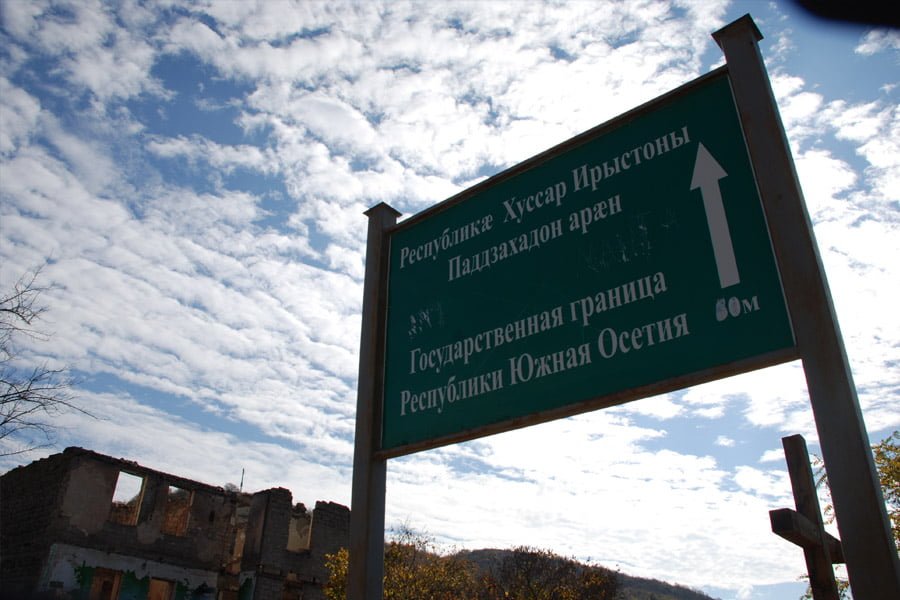Georgian and foreign officials have denounced the today’s ruling of Akhalgori district ‘court’ in occupied Tskhinvali region/South Ossetia, which has sent Tbilisi-based doctor, Vazha Gaprindashvili to one year and nine months in prison for “illegally crossing the border.”
Foreign Minister Davit Zalkaliani said at a news briefing that today’s decision has been “yet another proof” that Gaprindashvili’s detention “was a deliberate provocation” [from Tskhinvali]. “We will by all means activate the action plan that we had in case of this bad scenario,” Zalkaliani said, adding that Tbilisi will use all of its efforts to return doctor Gaprindashvili to his family “as soon as possible.”
Meanwhile, President Salome Zurabishvili held a special meeting with foreign ambassadors accredited in Georgia, calling on the international community to strengthen their efforts to ensure that Vazha Gaprindashvili is released before New Year’s.
Zurab Abashidze, Georgian Prime Minister’s special representative for Russia also stated that “the illegal decision to leave Vazha Gaprindashvili in detention,” negatively affects “already grave” security and humanitarian situation in occupied Tskhinvali, and “deliberately hinders any progress in peace talks.”
Deputy State Minister for Reconciliation and Civic Equality Lia Gigauri also stated that the today’s ruling clearly reveals “the real face of [Russian] occupation,” and is aimed “to escalate tension” on the ground. Noting that the state has been sparing no efforts for Gaprindahsvili’s “unconditional release” from “illegal detention,” Gigauri said they will “continue to fight and work” for that purpose.
The State Security Service of Georgia slammed Gaprindashvili’s detention as “part of illegal policy,” of the occupying regime [referring to Russia]. “The State Security Service, within its competence, will continue to work non-stop to [achieve the] release [of] Vazha Gaprindashvili, and informing international organizations and Georgia’s partner countries of the above illegal decision,” it stated.
According to Georgian Public Defender Nino Lomjaria, Georgian officials have mainly used “unofficial contacts” and formats of dialogue, among others, with the Russian officials, over the Georgian doctor’s release from Tskhinvali custody, while there are other international mechanisms, which can be used not only in this case, but also concerning the overall situation in Tskhinvali region.
“As a Public Defender, I am going to address various international organizations to receive more information about which additional mechanisms can be used; as this is the problem of the entire international community, a number of international organizations should get engaged and all of the possible human rights protection mechanisms and levers should be used,” Lomjaria stated.
Foreign diplomats accredited in Tbilisi, as well as foreign officials also made remarks about Gaprindashvili’s illegal jailing in Tskhinvali prison.
British Ambassador to Georgia, Justin McKenzie Smith stated following the meeting with President Zurabishvili that “today’s news from Tskhinvali about doctor Vazha Gaprindashvili is very concerning.”
“At a time, when humanitarian needs in Tskhinvali region are so serious, it really is hard to comprehend what anyone gains from detaining medical professionals,” he said, hoping that the Georgian doctor “will be released and returned to his family as soon as possible.”
German Ambassador Hubert Knirsch also hoped that “humanitarian solution” can be found for the Georgian doctor. “We’ve been concerned with the fact that he’s been illegally held in Tskhinvali for weeks already.”
Foreign Ministers of Estonia, Latvia and Lithuania, Urmas Reinsalu, Edgars Rinkēvičs and Linas Linkevičius, respectively, have also condemned the Georgian doctor’s detention and called on Russia-occupied Tskhinvali for his “immediate release.”
Calling doctor Gaprindashvili’s case “an issue of dignity” for the entire country, as well as the international community, Lapanashvili requested to immediate meeting with Prime Minister Giorgi Gakharia, and expressed her hope that the Georgian authorities would support her family.
Read also:
This post is also available in: ქართული (Georgian) Русский (Russian)

